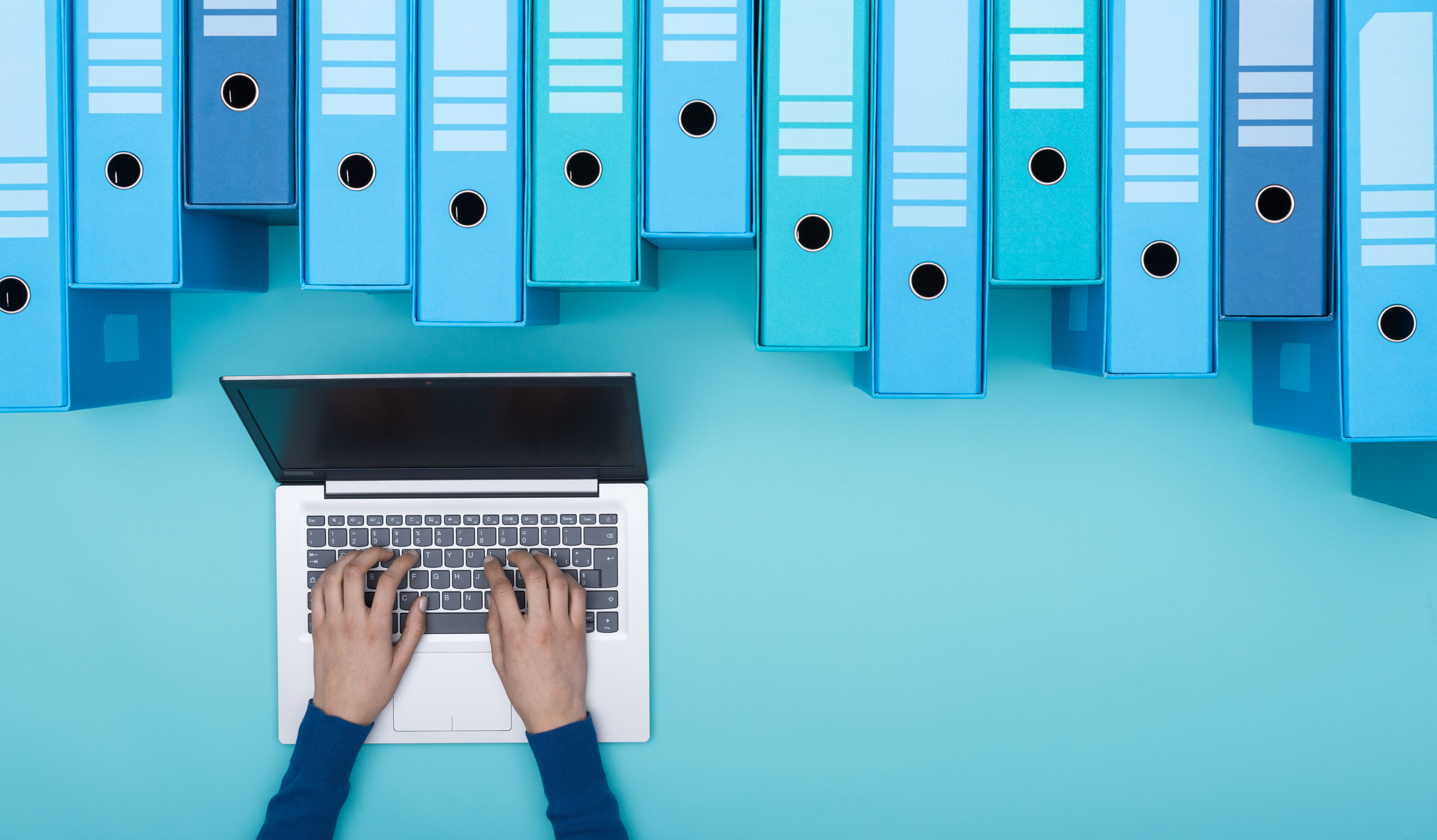Published May 7, 2024 • 6 Min Read
During the year, many of us gather clutter – we collect things that take up space and crowd our homes. The same thing tends to happen in our online spaces. We buy apps, sign up for emails and download software. Clearing out what’s no longer needed can lead to better performance and safety online.
The spring is a traditional time of year to clear junk and unwanted items from our homes. While our online presence doesn’t take up physical space, too much clutter can lead to poor performing devices and leave personal data vulnerable to hackers. Tackle your cyber space while spring cleaning is in the air.
Here’s how to refresh your cyber life:
Update your software
Yes, software updates can be annoying, but they play a specific and important role when it comes to your cyber security. When an update includes a fix for security vulnerabilities, for instance, devices running out-of-date versions of the software are at risk. Because cybercriminals know what vulnerabilities exist on a given system, you’re particularly vulnerable if you run outdated software.
When you install a software update, you know you’re running the newest version with the latest security improvements – not to mention performance features!
Set up two-step verification
More and more companies are requiring that you set up two-step verification (also known as multi-factor authentication) when logging into an account. Many financial institutions and government agencies will only enable your online log in when you verify yourself on a second device (such as your cell phone).
Even if two-step verification isn’t required, it’s a really good practice to set it up for all your accounts. This way, it’s harder for hackers to access the accounts you use – whether it’s your social media, food delivery service, ride sharing app or other account you use.
Give your email a deep clean
When was the last time you cleaned out your inbox? If you have old emails sitting around gathering “dust”, you may be at risk of a few things. For one, having hundreds (or thousands) of old emails, which contain files and photos, will eat up your storage capacity and could significantly impact the performance of your systems. And, with all that data sitting in your inbox, your information is more vulnerable to hackers – particularly if you’re holding onto sensitive messages or confidential attachments. Taking some time to really clean out your inbox this spring can give you both peace of mind and digital breathing room.
Check your downloads folder
Whether you’re receiving an email, downloading a transferred file or accepting a photo, often times things will end up in your downloads folder – and over the course of a year, it can accumulate a lot of files. Like a basement closet, it’s an “out of sight, out of mind” repository of stuff that often gets ignored. Like with your email inbox, however, an overloaded folder can slow down the performance of your device – and if you have downloaded personal, financial or otherwise sensitive files, you can be more vulnerable to malware or ransomware attacks.
Unsubscribe!
Now is a great time to get proactive with your digital presence. Prevent future inbox clutter by unsubscribing to emails you no longer need or want. You can either tackle your subscriptions all at once, or commit to unsubscribing whenever you receive an email you don’t need.
Clean up your passwords
If you’ve been using the same passwords for the last year (or longer), this is a great time to refresh them. After all, the longer you use the same password, the greater the risk that it will become compromised. Here are three easy password tips to adopt for the year ahead!
Check in on your socials
Do you still use all your accounts? If not, it’s a good idea to delete accounts that you don’t check or engage with. For social accounts you’re keeping, now is a good time to check that you’re still comfortable with all the photos and contacts. If there are old photos that are perhaps embarrassing, out-of-date or not reflective of who you are today – or contacts that you don’t know well or prefer not to be associated with – take a few minutes to delete them.
Manage your privacy settings
Your Privacy settings are a way of having some control over how organizations handle your personal information online. But many of us don’t know what our settings are or what they really mean for our personal privacy. Here’s how you can check your settings and make changes if needed:
For iOS users:
-
Go to your settings app and scroll to the bottom to see a list of all your downloaded apps.
-
Check to see what apps have access to your camera, microphone and location. Go to Settings >> Privacy for a complete list of apps and the access they have.
For Android users:
-
Go to your settings app
-
Select Apps & Notifications >> See All Apps
-
To check which apps have access to your camera, microphone and location, go to Settings >> Privacy >> Permission Manager
While reviewing your apps, delete any that you don’t need. Uninstalling apps from your phone not only declutters your home screen but ensures that your data is not being shared with apps you no longer use.
Back up what’s important
As you clean up your digital presence, it’s important to protect the data that matters to you. It’s a good idea to store files in a separate location (physically and digitally) – back up photos, videos and files in the cloud as well as in an external hard drive.
Safely dispose of old devices
When cleaning, round up any old devices you no longer use. You can take them to an e-waste recycling location or local recycling centre and they’ll get put to good use elsewhere. There are national and provincial e-recycling programs, and Best Buy offers recycling at most locations. Check with your municipality to see where you can take your devices.
Just be sure to wipe the data from your device before you hand it in – perform factory reset on your phone or tablet and remove any memory cards or hard drives.
Spring cleaning can be a satisfying exercise – whether you’re doing a physical or digital clean-up. Give yourself some digital breathing room and boost your cyber security by decluttering your online life this spring.
This article is intended as general information only and is not to be relied upon as constituting legal, financial or other professional advice. A professional advisor should be consulted regarding your specific situation. Information presented is believed to be factual and up-to-date but we do not guarantee its accuracy and it should not be regarded as a complete analysis of the subjects discussed. All expressions of opinion reflect the judgment of the authors as of the date of publication and are subject to change. No endorsement of any third parties or their advice, opinions, information, products or services is expressly given or implied by Royal Bank of Canada or any of its affiliates.
Share This Article






